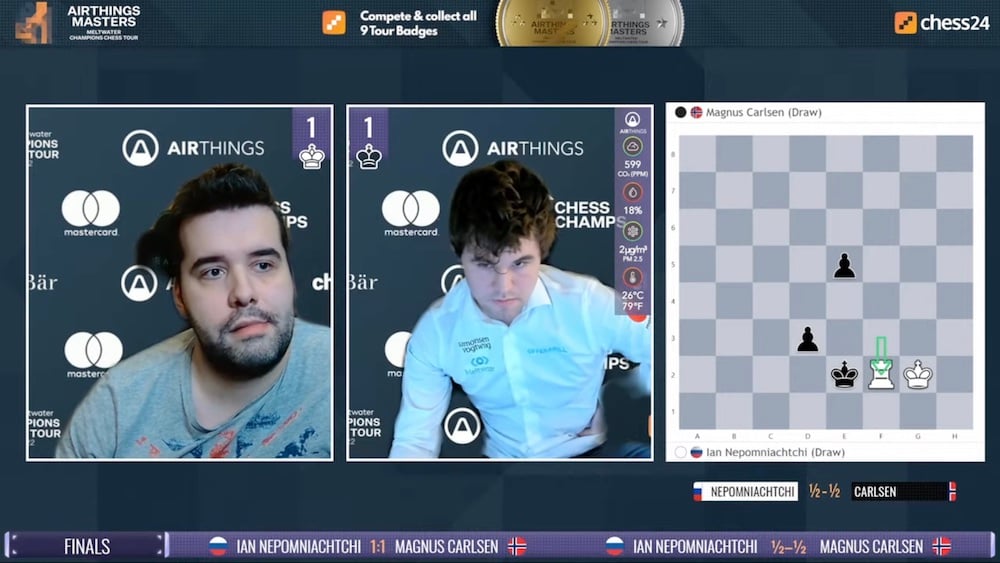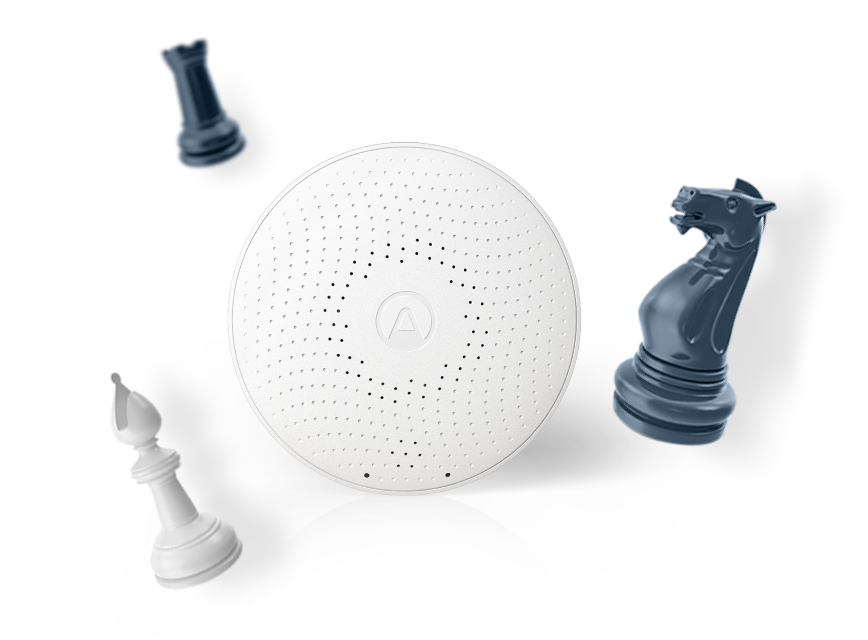Air quality and strategic decision-making are inextricably linked. How do we know that? Science uses the ultimate strategic thinkers to discover the answers - chess players.

Researching the effects of air pollution with chess
A study published in 2023 by researchers from MIT and Maastricht University has found that air pollution affects chess players' performance and causes more mistakes. Fine particulate matter leads to an increase in errors made by players. The study analyzed the performance of 121 chess players in three seven-round tournaments in Germany over three years and found that when individuals are exposed to higher levels of air pollution, they make more mistakes and larger errors. The researchers measured air quality, temperature, and carbon dioxide (CO2) inside the tournament venue and found that PM2.5 concentrations had a significant impact on player performance. The results were replicated using data from 20 years of games from the first division of the German chess league. The results showed that an increase in just 10 µg/m3 of PM2.5 or fine particles increased the chances of a player making an erroneous move or 'blunder' by 26.3%. So, next time you drop a piece off the board, maybe you can blame your air quality, that is if you're monitoring it. The study also found that the effect worsened under time constraints, which are typical of rapid and blitz chess. The findings highlight the impact of air pollution on cognitive function and decision-making abilities, adding to the growing body of research exploring the effects of air pollution on the brain.
Air quality problems in chess
At the recent World Rapid & Blitz Championships, the air quality inside the chess tournament arena in Almaty, Kazakhstan was causing concerns for the players due to the intense heat. Magnus Carlsen stated that it was becoming difficult to breathe inside the arena. Similarly, Hikaru Nakamura also reported the high temperature as challenging. Despite some players previously complaining about the temperature and stuffiness, little changed regarding the air quality situation with the organizers stating that it is difficult to accommodate all players' preferences regarding air quality. The full story was covered in the Norwegian news outlet NRK and in an interview with Magnus Carlsen by Chessbase India.
Airthings and Chess
Why should chess players monitor their air quality?
Today, top-level chess players exclude nothing in their preparations for elite-level tournaments. They draw from every piece of information available to them, both about their opponents and themselves, and this now includes details as specific as air quality.
What's in the air that can impact my decision-making?
- CO2 is everywhere, but indoor environments often have higher concentrations. High CO2 levels can lead to drowsiness, headaches, and poor concentration. The Airthings View Plus monitor can detect CO2 levels in parts per million, and anything above 1000ppm requires immediate attention.
- Particulate Matter or PM is a collection of dust, dirt, and liquid particles that become suspended in the air. Some are visible, like smoke and soot, but some are finer. The most harmful are smaller, invisible particles that can enter our lungs and bloodstream.
- Temperature and humidity are essential for player comfort and endurance. Accurate readings of these metrics help players adjust their playing environment for maximum focus and performance.
- Volatile organic compounds, or VOCs, are airborne chemical pollutants that can be harmful to your health. Indoor environments can have up to 5x more VOCs compared to outdoors, and sources such as cleaning products, candles, and furniture can emit toxins. Airthings monitor's like the Wave Plus help you keep track of VOC levels, allowing you to remove all sources of these toxins from your playing area.
- Air pressure can cause headaches and migraines. Weather causes air pressure to change because of the movement of air masses, temperature differences, and precipitation. Cold air is denser and sinks, creating high pressure, while warm air rises and creates low pressure. Precipitation, such as rain, can also cause changes in air pressure. Yes, changes in air pressure can cause headaches due to pressure changes affecting the sinuses.
- Radon is a dangerous gas emitted from radioactive material found beneath the topsoil. This tasteless and odorless gas can be harmful to our long-term lung health if not detected early. Airthings monitor's with radon sensors help you keep track of radon levels, ensuring your home is safe and healthy.

Airthings provides air quality monitors that track CO2, particulate matter, temperature and humidity, volatile organic compounds, air pressure, and radon, helping players maintain not just a healthy and comfortable playing environment but also optimized for performance. During the Airthings Masters (Feb 6-10) you can watch the world's best chess players and view their air quality throughout via Youtube, Twitch, Chess.com, Chess24, and ESTV.
So, how's your air quality? Check.











.jpg)